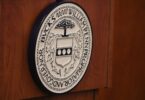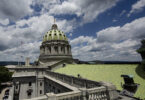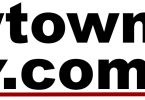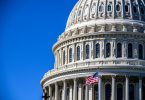By Tim Henderson | Stateline, an initiative of The Pew Charitable Trust.
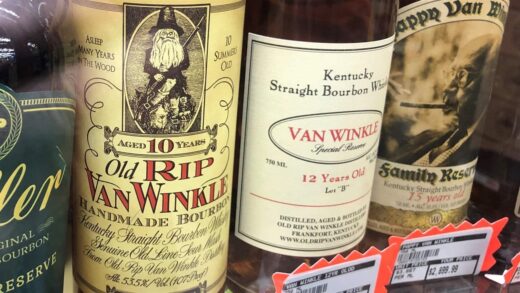
Credit: Tim Henderson/Stateline
As liquor connoisseurs’ quest for certain high-end bourbons becomes a blood sport, the 17 states that control their own liquor stores have adopted more and more complex methods to stop obsessed seekers from gaming the system by stalking delivery trucks and reselling sought-after bottles on the black market.
Over the past decade, bourbon, once known as the drink for the common man, has acquired the cachet of high-end scotches. Bottles that used to sell for under $50 can now fetch several times that amount, especially on the secondary market — stretching the resources and imagination of state liquor officials trying to equalize buying opportunities for their residents.
Even state officials have fallen prey to the craze, though. Oregon’s top liquor control official resigned this month after admitting he asked for a rare bottle amid reports that sought-after liquor was being diverted for other state officials and lawmakers. In Virginia, a former state store employee and an alleged accomplice faced felony charges last year related to giving out inside information on locations of prime bourbon.
“It’s really crazy. People are climbing into delivery trucks to look around, stalking clerks, sneaking into storerooms. Sometimes they will line up before opening just to be the first to ask if there’s anything new,” said Shawn Kelly, press secretary for the Pennsylvania Liquor Control Board. “We want to give the average Pennsylvanian the opportunity to buy a once-in-a-lifetime bottle. We don’t jack up the price, and we don’t make it hard to find.”
Like many of its peers among the “control states” that run their own liquor stores or wholesalers, Pennsylvania has been experimenting with new distribution methods. State-run stores often will shift to online purchasing or lottery sales for particular bottles when the hunt gets too feverish, Kelly said.
The competition for rare bourbon is especially intense at state-run stores, which usually sell liquor at prices far cheaper than at independent businesses. In Virginia, for instance, bourbon hunters went as far as trailing delivery trucks from store to store, trying to buy bottles as soon as they arrived, said Pat Kane, a spokesperson for the Virginia Alcoholic Beverage Control Authority.
So, the state last year started what it calls “drops” — rare bottles arrive unannounced in stores and go on sale at randomly selected times announced on social media and in email newsletters. After adjustments to the system following the former employee’s arrest and later guilty plea, Kane said, the system has been working smoothly.
“We are confident the system gives all Virginians an equal opportunity,” he said.
Some say the fad started with the late chef Anthony Bourdain in 2012, when he mentioned Pappy Van Winkle, a Kentucky bourbon, on his show “The Layover”: “If God made bourbon, this is what he’d make.” Even then, Bourdain said on the show, “there are just too many sons of bitches out there who want it.”
The excitement soon spread to other brands of premium bourbon, especially those made by the Sazerac Company’s Buffalo Trace distillery alongside Pappy Van Winkle in Frankfort, Kentucky.
“Bourbon was an everyman’s drink. It was affordable; you didn’t have to spend more than 30 bucks. Around 2012-14, the tides shifted really quickly,” said Jordan Moskal, co-founder of the Breaking Bourbon review website. “People started saying, ‘Hey, I want one of these bottles — people are talking about it.’”
Pappy Van Winkle was one of the bourbons behind the scandal this year in Oregon, where top state liquor officials were accused last year of setting aside bottles to sell to lawmakers and top managers, including Steve Marks, executive director of the Oregon Liquor and Cannabis Commission. Marks resigned this month after Gov. Tina Kotek, a Democrat, told him to step down. Marks acknowledged in an investigative interview that he asked an employee to set aside liquor for him, including 23-year-old Pappy Van Winkel, according to accounts of the interview in The Washington Post and The Oregonian, which both obtained the recording.
Pappy Van Winkle bourbons have list prices ranging from $119 for the 13-year-old variety up to $299 through $399 for the 23-year-old whiskey, but they fetch more than $5,000 online. Even at about $300, a reviewer at Breaking Bourbon called the 23-year-old version “probably worth the dough” but added: “I have a hard time spending that on any bourbon, regardless of whether it features an old man smoking a cigar on it.”
With Pappy Van Winkle so rare and expensive, many bourbon enthusiasts are turning to somewhat more available Sazerac brands such as Blanton’s, Moskal said.
Sales of Blanton’s and another Sazerac brand, Weller, are the focus of a multistate investigation into secondary markets and possible counterfeiting overseas.
The probe involves a private retailer with locations in Kentucky and the District of Columbia, along with some of its suppliers in Pennsylvania and the Netherlands, according to an investigative report provided to Stateline. The report quotes an investigator for the U.S. Department of the Treasury’s Alcohol and Tobacco Tax and Trade Bureau saying, “Sazerac product is more lucrative than heroin now.”
In D.C., investigators took several bottles of Blanton’s to test for authenticity after reports they were bought in the Netherlands, where federal officials, along with Sazerac executives, have reported counterfeiting operations.
According to the report, Texas and Pennsylvania also are looking into large shipments of bourbon. The agencies cited declined comment to Stateline, as did the Sazerac Company.
An attorney for the business provided a legal rationale for its actions in D.C. in an email included in the report, saying D.C. law allows retailers to get liquor elsewhere when authorized wholesalers can’t supply enough “to reasonably satisfy the immediate needs of the licensee.” The attorney did not respond to a request for more comment.
D.C. Attorney General Brian Schwalb, a Democrat, is still considering whether to file charges, said Jared Powell, chief of staff for the District’s Alcoholic Beverage Regulation Administration, which discussed the investigation with attorneys in closed-door meetings in February.
The Center for Alcohol Policy, an advocacy group for the liquor industry based in Virginia, said it’s important for states to keep liquor markets safe from counterfeiting and illegal secondary markets, “not only to ensure safety but also that the product is the real McCoy,” said Executive Director Kelly Roberson.
The number of states that directly control liquor sales has been largely stable since 1933, when the 21st Amendment legalized alcoholic beverages after Prohibition and gave states the right to decide how to regulate sales, said Margaret Barchine, communications director for the National Alcohol Beverage Control Association, a trade group based in Virginia. The only exception: Washington state opted to drop out of control status in 2012 and let private businesses run stores and wholesale.
Another state that runs its own stores, Utah, started a lottery-like system in 2019, said Michelle Schmitt, communications director for the state’s Department of Alcoholic Beverage Services. Before that, the state experimented with online announcements followed by distribution of tickets as people arrived at stores.
One Utah resident recently tweeted a photo of a bottle of Stagg bourbon, another Sazerac product, calling himself “a lucky SOB” to get the bottle for $47, drawing congratulations from some bourbon fans who said they’ve been trying to find it for years.
Localities that run their own liquor stores, such as Montgomery County in Maryland, also have tried to adapt to the crush of demand for rare bourbon and other liquor. The county, the only one in Maryland to run its own stores, has a lottery system for state residents and also announces availability for popular but less-pricey kinds of bourbon and other liquor one day a month, with specific store stocks listed in advance. The system has been in place since December 2021.
“Our program is working well, but we re-evaluate it twice a year to make sure we are keeping up with trends,” said Jocelyn Rawat, communications manager for the county Alcohol Beverage Services department. “There are always people disappointed that they didn’t get the product that they want, and we strive to make sure the system is as fair as possible.”




